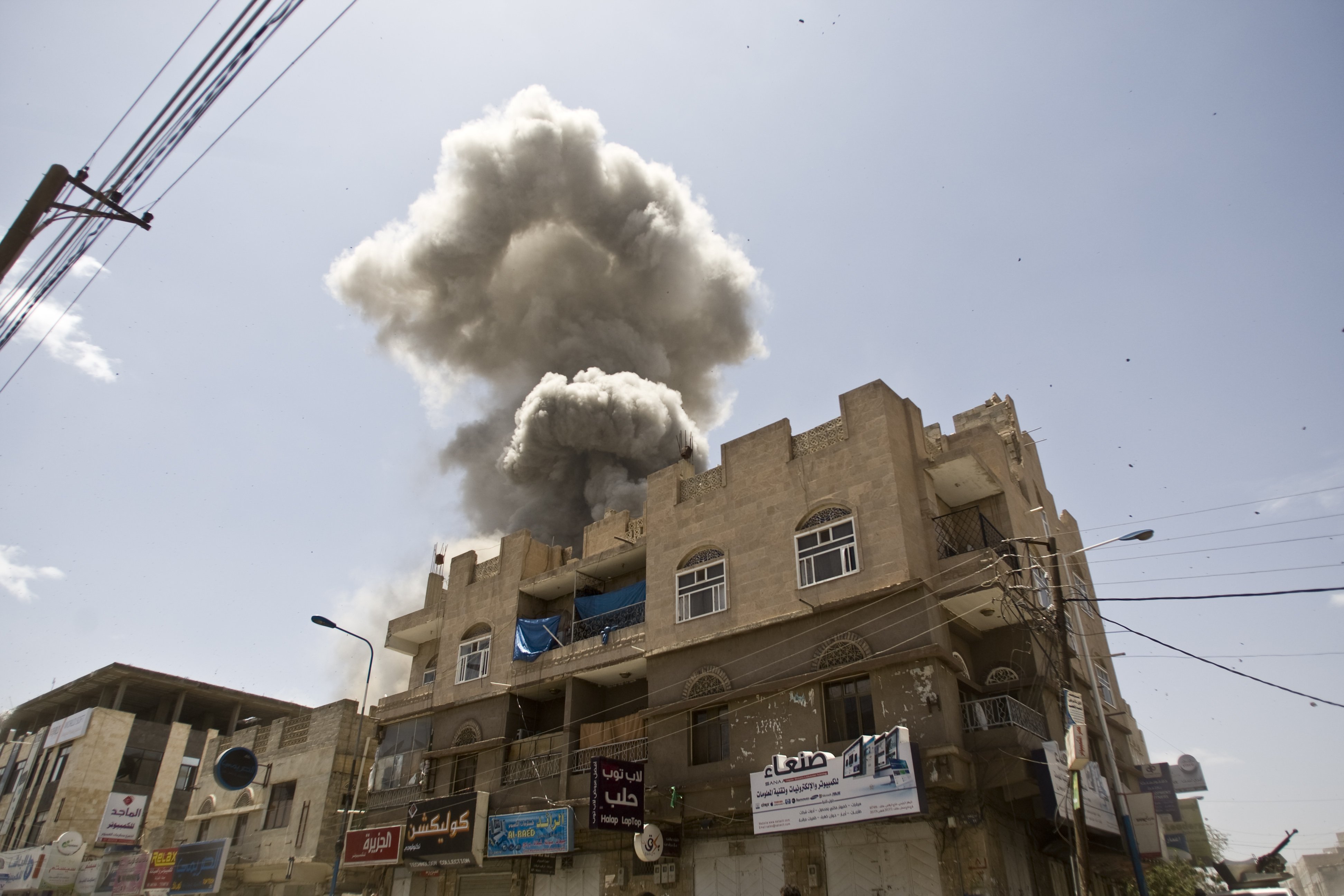The United Nations has announced that peace talks have been arranged to take place between the opposing Houthi and Saudi-backed Yemeni government in an effort to end the civil war that has continued since 2014. However, we have to acknowledge there is no denying the involvement Western countries have had in the escalation of this conflict.
It is true that allegations of war crimes have also been levelled at the opposing Houthi rebellion. No side in the conflict is free of blame, as a report published by the Group of Regional and International Eminent Experts on Yemen mandated by the UN Human Rights Council has described evidence of the indiscriminate bombing of civilian areas, torture, and unlawful detention by Houthi forces as well as by the Saudi-led coalition. But the tensions between Saudi Arabia and the West have come to a head with the recent murder of journalist Jamal Khashoggi and renewed accusations of human rights violations in Yemen, such as the bombing of a school bus that killed 40 children and injured a further 56 earlier this year.
As evidenced by investigative journalism site Bellingcat, the bomb the caused this destruction was constructed in America and sold to Saudi Arabia in 2015, just one of the many supplied by the US and Europe in the biggest arms-trade relationship in the world. According to the Financial Times, Saudi Arabia is the biggest importer of defence equipment and services in the world, at a peak of import of $8.3bn in 2016 and a predicted 2018 import total of $7.3bn. More concerning, however, is the sudden and sharp rise in this trade. Between 2008 and 2013, annual imports did not exceed $4bn.
Saudi Arabia has essentially been viewed by the US as a source of oil and a military ally after the Iraq and Iran conflicts. Even so, Hillary Clinton stated that ‘Saudi Arabia remains a critical financial support base for al-Qa’ida, the Taliban, LeT and other terrorist groups including Hamas’ in leaked US embassy cables released by WikiLeaks in 2010, indicating knowledge of Saudi Arabia’s potential threat. In the past, the support of Saudi Arabia by the West, especially the UK and US, points to the willingness of those governments to turn a blind eye and ignore the actions of their seemingly most valuable customer. Now, in the US at least, opinion has begun to shift. Last week, the US Senate voted to consider removing military support for Yemen in a cross-party rebuke of Trump’s continuing support for Mohammed bin Salman, the crown prince of Saudi Arabia.
The same cannot be said of the UK. Even at last week’s G20 summit, it seemed that little had changed. Theresa May urged bin Salman to ‘ensure that Saudi Arabia co-operated fully with the Turkish authorities’ as well as stressing ‘the importance of ensuring those responsible for the appalling murder of Jamal Khashoggi are held to account’, according to a Downing Street spokesman. Yet, CIA reports claim that bin Salman himself was directly culpable in the murder of Khashoggi, and yet there was no mention given to the cessation of arms trade, neither in response to Khashoggi’s murder, nor a reaction against the continued allegations of war crimes in Yemen.
The hypocrisy of continuing to sell weapons and military support to Saudi-Arabia while simultaneously calling for peace in Yemen and punishment for the killing of Jamal Khashoggi is disturbing and dangerous. For too long, Western governments have been happy to put profit above justice, and as a result, it has allowed the creation of a potential threat to the international community. Saudi Arabia seeks to have its own nuclear programme. You only need to view the enthusiastic high-five with which bin Salman and Putin greeted each other at the G20 summit to get the sense that continued support of an enemy’s friend has heavily backfired.
Michael Keating
(Image Credit: Fahd Sadi)

